Resources
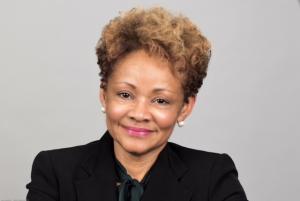
When I occupy the authoritative epistemological space, when I take my place, at the head of a biblical studies course as a black woman, I am conscious of the radicalness of my embodied performance, intellectually and physically. White men are considered by the majority of academics to be the quintessential biblical studies experts, which is not unrelated to racism and sexism and their impact on white and nonwhite scholars and students. My intersectional identity as a black woman New Testament scholar and my decentering work are both disruptive of white men’s positionality and epistemological superiority. Sherene Razack states that “a radical or critical pedagogy is one that resists the reproduction of the status quo by uncovering relations of domination and opening up spaces for voices suppressed in traditional education.”[1] This blog post is my third critical reflection on the pedagogical collaboration between Dr. Dan Ulrich and me in which I taught a summer course on African American Biblical Interpretation and the Gospel of Luke for Bethany Theological Seminary/Earlham School of Religion and Columbia Theological Seminary students. I was the teaching professor, and Dr. Ulrich was the learning professor. He is a white cisgender man who has taught for over twenty-nine years; I am an African American woman with over fourteen years’ experience teaching biblical studies (for most of my career I was required to teach both testaments, including Hebrew and Greek languages). Our syllabus identified me as the teaching professor. Because of the tendency of students to genuflect to white male authority at the expense of women and black and brown scholars, I chose not to allow Dr. Ulrich to act as an editing teacher editing teaching or to participate in the discussion forums, except the one reserved for introductions. In that forum at least one white student stated that she looked forward to learning from Dr. Ulrich. I sensed there were times when some students wished Dr. Ulrich would rescue them from my authoritative and often overtly culturally-situated epistemologies and gaze. My gaze as a black woman was temporary, but the white gaze is inescapable. The white gaze to which black and brown scholars are subjected is pervasive, invading the classroom and transcending it. The white gaze requires that black and brown peoples constantly fortify themselves against attempts to diminish and discount their epistemological resources and constructions, especially when (or to preclude or mitigate) the decentering whiteness. I sometimes invited Dr. Ulrich to contribute to the discussion, but I never relinquished my authority. To be under the white gaze is to be constantly on guard. I did not attempt to prove the legitimacy of my presence and authority but to stand in it, unapologetically, in each synchronous class session and discussion forum. I did hesitantly, at first, include Dr. Ulrich in the Zoom small group break-out sessions. Each time, I visited every group except the one to which I randomly assigned him. I had to trust that he would respect my authority even when beyond my gaze, and I believe he did. I did not police him in those groups. I do not know if Dr. Ulrich experienced to any degree, even if for a few hours for two weeks, the gaze or surveillance to which black and brown bodies are subjected perennially. White professors often include our works as required readings, but the extent and the ways in which students are permitted to value or accept them as authoritative or legitimate are policed. For example, black students have complained of white instructors teaching feminist courses that include womanist readings but that also subsume womanism under feminism, as if it is feminism’s intellectual child, or mitigate womanism’s political agenda by alleging that womanism is not as political, if at all, as feminism. During this COVID-19 pandemic, more white scholars are inviting black and brown scholars into their classrooms via Zoom to discuss their works. Hopefully, these opportunities for hearing from the scholars themselves will limit attempts to diminish and/or misrepresent our work, whether intentional or not. When I occupy the space at the head of a classroom, even when a white male colleague does not occupy the seat of learner, I do so in the minds of many students, across race, ethnicity, and gender, as a proxy or surrogate for white male biblical scholars/ship. Over the years, (last year was no exception), students, primarily white across gender, have made statements like “Dr. [white male] does it this way or said this.” Early in my career, two separate white women students, in two separate courses—one in biblical hermeneutics and one in Hebrew Bible—believed it their duty to notify me that “they did not have to agree with me.” One objected to my use of the NRSV with apocrypha, informing me that it was not a Christian Bible. I don’t remember to what the other woman objected. But in my mind, their objections had more to do with who I am—a black woman—than with what I asserted. I was the first black woman biblical scholar hired at that institution. In most seminaries and theological or divinity scholars, students will never be taught by a black man or woman biblical scholar. Unsurprisingly, of twenty-one students who responded to one of the collaborative course the course Moodle polls, only one had ever taken a Bible course taught by a black biblical scholar. One student had read a book by a black woman biblical scholar (that same student). All except one student had never read anything more recent than True to Our Native Land (2007). Black biblical scholars have published quite a bit since then. My work in that volume is a lot less progressive than my current work. In fact, as I noted in a previous blog, Dr. Ulrich stated that had he read my more recent work, he might not have asked me to teach this course. I am clear that my work is “radical” in relation to malestream Eurocentric biblical interpretation. It is still radical to encounter a black woman at the center or helm of a biblical studies course; it remains radical to center the bodies, voices, struggles, creativity, oppressions, scholarship, and communities of black women and men. In another Moodle poll, students responded to the question about reading black biblical scholars. For them black biblical scholars, black theologians, and black ethicists are interchangeable; they listed James Cone, Delores Williams, and other nonbiblical scholars, for example, in response to the question about the black biblical scholars they had read prior to this course. This response highlights the uncritical commodification and racialized substitutability of the intellectual contributions of black and brown peoples, that is less often encouraged and does not so readily occur with white biblical scholars. Instead of taking the time to find works produced by black and brown biblical scholars, white scholars and students, especially, will substitute one black or brown body for another in their publications and in biblical studies classrooms. An anti-racism agenda requires that we do differently. Notes [1] Sherene H. Razack, Looking White People in the Eye. Gender, Race, and Culture in Courtrooms and Classrooms (Toronto: University of Toronto Press, 1999), 44. This process of revelation and disruption is accomplished through “the methodology of storytelling.”
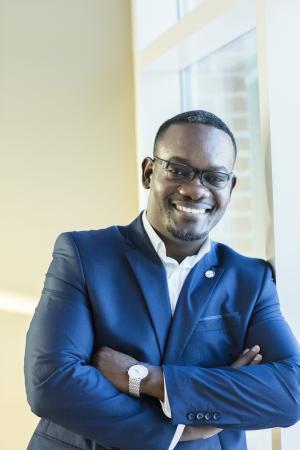
Character formation plays a crucial role in enabling students to engage effectively in endeavors related to social justice and civic engagement. I have wrestled for a long time with how best to help students respond to societal challenges such as inequity, prejudice, and discrimination that they face or observe. As an ordained clergy of the Wesleyan Church, I fully embrace my denomination’s rich tradition of social justice. In addition, I seek to live out the belief that humanity can experience deep spiritual transformation that leads one to embody Christlikeness. I integrated these concepts in my teaching very early on in my career. However, I became even more acutely aware of the centrality of character formation to my teaching when I joined the faculty at Indiana Wesleyan University. The University’s mission statement reads, “Indiana Wesleyan University is a Christ-centered academic community committed to changing the world by developing students in character, scholarship, and leadership.” Every semester, I would teach one or two sections of the BIL102—New Testament Survey course as part of the General Education core. One of the purposes of the GenEd core is to help students begin to embrace Indiana Wesleyan’s World Changing mission. In the course in question, I design the learning in alignment with the purpose “to develop and articulate a Christian way of life and learning that enables virtue, servant leadership, and citizenship in God’s Kingdom.” Since every student has to take BIL102, I relish the opportunity to have students from different backgrounds engage the biblical text. During the class, I am intentional about challenging students not only to engage the text but also to encounter the person about whom the text speaks: namely Jesus. In our reading of the Gospel of Mark, I focus particularly on Jesus’s encounters with the marginalized. I use narrative techniques to help students place themselves in the shoes of different characters, and challenge them to wrestle with the implications of reading the text from different vantage points. More particularly, I ask them to name an aspect of Jesus’s identity and character that they can emulate. I remember the day a student described Jesus as “sassy.” I was shocked! I am not a native English speaker. The definition of “sassy” that I learned—rude, impertinent—did not match what I knew of Jesus, nor what I hoped my students would want to emulate. Thankfully, I managed to not voice my initial reaction, “How did you get that from the text?!”, but instead replied, “Tell me more!” The student went on to describe Jesus’s direct and, in her words, “no-nonsense” posture toward people. The student used Jesus’ interaction with the Syrophoenician woman in Mark 7 as a case in point. I conceded to the student that Jesus’s words seemed harsh, and I allowed the class to enter and dwell in the awkwardness and difficulties of the narrative. In the end, I was successful in encouraging the student to think of a different way of describing Jesus. My success was short lived. As we journeyed through the Gospel of John, the student became even more convinced of Jesus’s sassiness. I realized that it was necessary for me to pause and grasp the way the student understood the word, and what they were seeing in Jesus’s interactions with people. It dawned on me that Sassy Jesus was appealing because of the balance of truth telling and deep compassion that he displayed. While I struggled initially with the concept, Sassy Jesus eventually became part of the New Testament Survey experience. As I helped students prepare for a lifelong commitment to service and engagement as world changers, the idea of being bold and courageous in telling the truth while showing deep love and compassion began to take root. They found Sassy Jesus to be a relatable person. They found it less difficult to emulate and embody the requisite balance to speak the truth in love. To participate effectively in endeavors surrounding social justice and civic engagement, students need to be resilient and compassionate. It has become more and more difficulty to maintain this balance in public and private life. On the one hand, people hesitate to challenge or call out another person for fear of being viewed as intolerant. On the other hand, there is a tendency to confuse love and compassion with conformity and/or compromise. Jesus mastered the art of welcoming and going to people with whom he disagreed, people who were outcasts, and even people who thought they had everything figured out. He knew how to show them unconditional love and how to challenge them to embrace a better way of life, the way of the Kingdom. One of the greatest challenges we face as educators is to help re-create environments where students not only learn the skills but also develop the character necessary to engage in irenic conversation about difficult issues. We need to design learning opportunities that produce growth and maturity that lead to boldness. We need to construct experiential learning opportunities that build empathy in our students. This will enable them to stand against injustice, prejudice, and discrimination. It will empower them challenge others with the boldness and compassion that come from emulating and embodying the character of Sassy Jesus.
Getting through the pandemics will take all of us, plus the willingness to allow our imaginations to be chaotic and refuel the soul. Dr. Nancy Lynne Westfield hosts Dr. Christine Hong (Columbia Theological Seminary).

This book analyses the structural and institutional transformations undergone by doctoral education, and the extent to which these transformations are in line with social, political and doctoral candidates' expectations. Higher education has gone through profound changes driven by the massification and diversification of the student body, the rise of neoliberal policies coupled with the reduction in public funding and the emergence of the knowledge society and economy. As a result, higher education has been assigned new and more outward-looking missions, which have subsequently affected doctoral education. The editors and contributors examine these transformations and changes at the macro, meso and micro levels: wider and more structural changes as well as doctoral candidates' experience of the degree itself. This book will be of interest and value to scholars of doctoral education and the transformation of the university more widely. (From the Publisher)

This book provides a practical philosophy for promoting students' sophisticated thinking from Early Childhood to PhD in ways that explicitly interconnect across the years of education. It will help teachers, academics and the broader learning and teaching community to understand and implement these connections by introducing a conceptual framework, the Models of Engaged Learning and Teaching (MELT). By covering the nature, philosophy, practice and implications of MELT for teachers and students alike, the book will help teachers to facilitate students’ awareness of, and increasing responsibility for, the thinking demanded by subject and discipline-specific learning as well as interdisciplinary learning, whether face to face, online or in blended modes. The book will also provide educators with ways to effectively engage with complex, and sometimes conflicting, contemporary educational concepts, and with a diverse variety of colleagues involved in the learning and teaching enterprise. The book provides guidance that allows curriculum improvement, teacher action research and larger-scale research to be reported on from a common perspective, bridging the gap between those readers focused on research and those focused on teaching. The book shares valuable insights and ways of addressing the contemporary issue of discipline-based learning versus transdisciplinary learning, reducing the dichotomy and enabling the two approaches to complement each other. (From the Publisher)

Theological education in the United States finds itself in untested circumstances today. Rapid social change is creating an increasing multicultural, multiracial, and multireligious context for leadership formation. At the same time, international enrollment, cross-border educational initiatives, student and faculty exchanges, and more are connecting US theological schools with a global community of Christian teaching and learning. How do US theological institutions “locate” themselves within this global ecology of theological formation so as to be both responsible participants and creative shapers within it? That is, how do they discern their proper place and role? It is questions like these that the contributors to this volume explore. Building on the decades-long discussion about the globalization of US theological education, this book argues that, in engaging such questions, US theological institutions have much to gain from a sustained conversation with the burgeoning literature on the internationalization of American higher education. This research offers theological institutions a trove of insights and cautionary tales as they seek to discern their rightful place and role in educating leaders in and for a global Christian church. (From the Publisher)
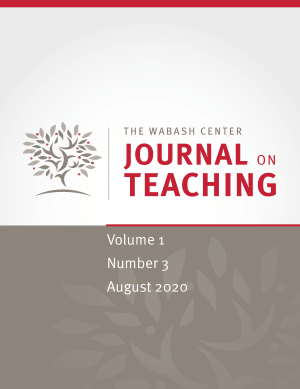
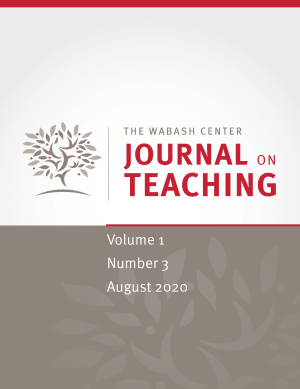
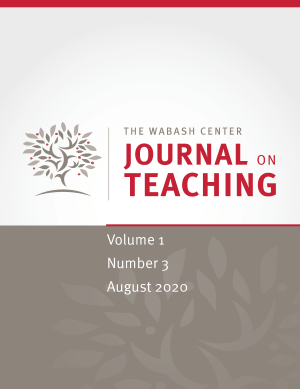
n this learning design, the book of Ruth is read closely and critically in order to foster dialogue about political issues in the classroom. Using bell hooks’ model of engaged pedagogy, political issues such as feminism, immigration, gender, sex, and consent are carefully addressed through the pedagogical strategies described. Teachers may use all of the strategies in a full unit on Ruth, or they may choose one or two to implement in a single class. Cobb suggests the use of polling, creative expression through drawing, videos, small group discussions, and maps to incite thoughtful conversation about relevant political issues and the book of Ruth.